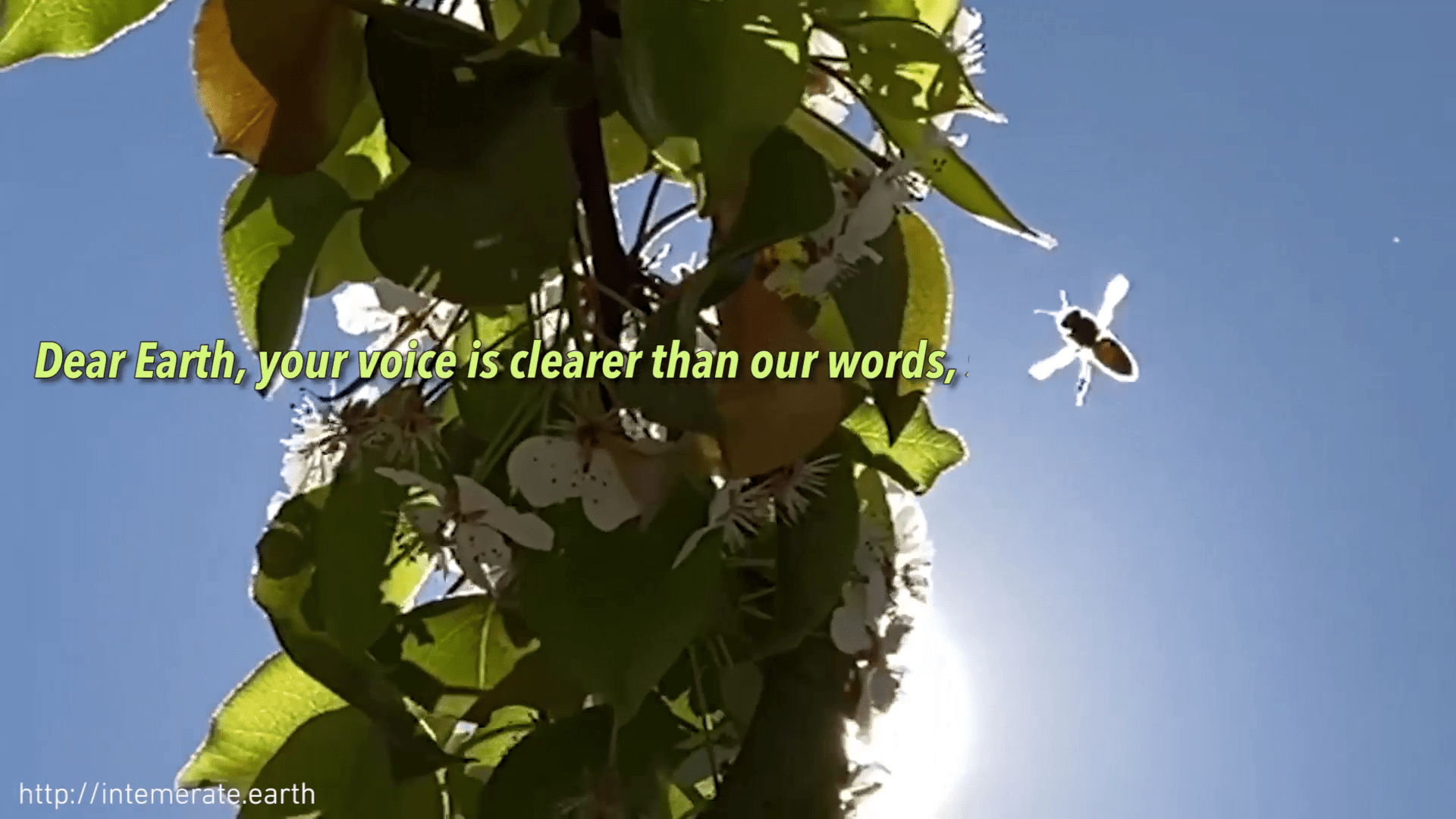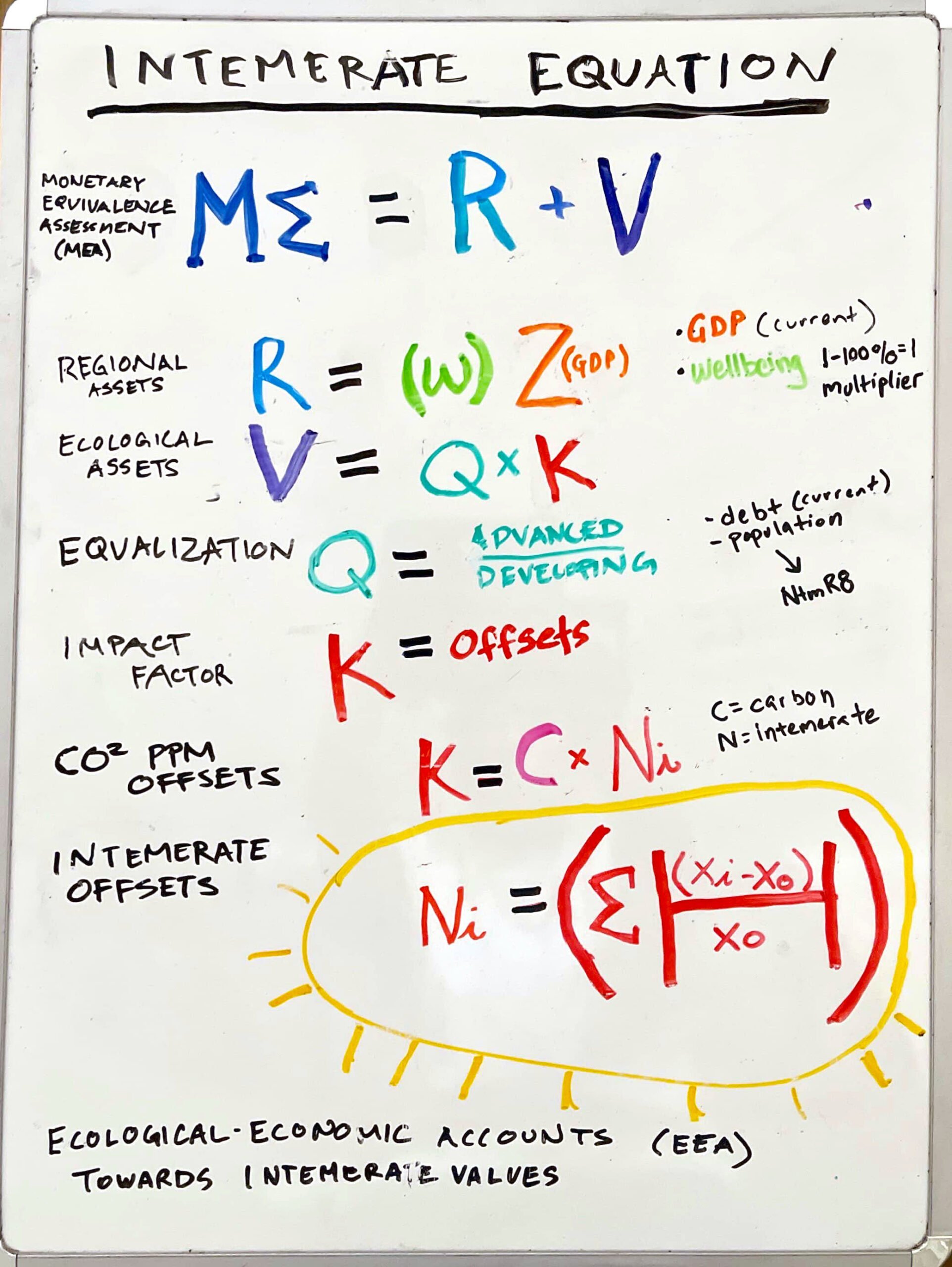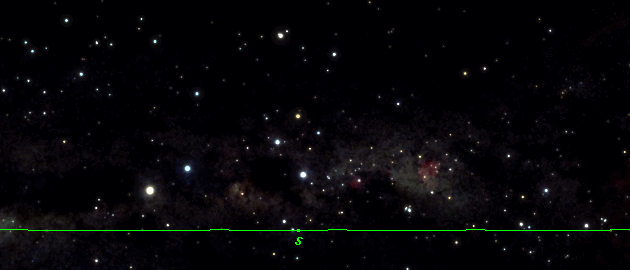WCC Presentation,
January 4, 2021
Hello everyone, my name is Arnie Saiki and I’m part of an independent working group on data, statistics, and valuation. working on an ecological-economic accounting system that we call intemerate accounting. Intemerate means pure, inviolate, and sacrosanct, and it is predicated on the notion that our ecological biodiversity is existential and as such cannot be valued as a commodity. What can be valued however are the offsets and our interaction with each other and our environment, and that is the foundational principle behind our intemerate accounting scheme.
We are at a time when we are all seeking solutions to a planet in crisis. As evident, the world is clearly in crisis and while most of us have put the coronavirus pandemic at the forefront of dealing with the social and economic aftermath, the crises of climate change looms larger in the background. Setting the clock back a year to before the pandemic, it’s important to remember that the neoliberal economic system was already in turmoil. National public debt had already surpassed the 90% debt-to-GDP threshold of the advanced economies and developing countries had already begun to shift their attention towards China and the Belt and Road Initiative because it provided a much better alternative than the western counterparts.
The COVID-19 pandemic exacerbated any notion of economic recovery, and while COVID-19 is blamed for our economic downturn, it’s important to remember that the economic downturn happened in 2008 with Wall Street financial collapse and how the larger economies remained solvent through debt vehicles like Quantitative Easing of which trillions of dollars were poured into the advanced economies.
Because of time, I’ll leave the economic reading there, and if there are disputes we can come back to that, I just want to make clear that we understand that COVID-19 was not a catalyst for our economic downturn, but rather a symptom.
So having said that, as we look for solutions to fix our economic and ecological crises, we have to understand that the interactions between our ecology and economy are absolutely and fundamentally intertwined. When there is a disconnect between the ecology and economy, the assumption should be that there is something that is not working. In the case of our planet, our ecology works. Millions of years of evolution have created an ecosystem of mutual interactions, and for thousands of those years, humans have developed a notion of the economy: of trade, infrastructure, and supply chains that interacted with the world. The ecology is what works. That is the fundamental by which we should be measuring our economies, our laws, our trade, infrastructure, and supply chains. Not the other way around.
It is simple enough to trace the evolution of law and economic principles and we can readily pinpoint the moments when industries promoted these laws above the laws of nature. So when we look for solutions to fix our existential crises, why do we turn to economic models that have created these crises, to begin with?
But of course, the crisis of climate change, biodiversity loss, and the threats to our ecological sustainability is much greater than either the coronavirus or collapsing economic failures, as these are long-term, fundamental, and existential and cannot be fixed with a vaccine.
What provides some hope, however, is our young people who can fight for change. Young people travel to the far reaches of their imagination every day and find solutions to problems. It doesn’t necessarily matter whether they believe in magic, spells, incantations, religions, or abstracted political or economic notions of democracy, justice, capitalism, communism, or karma. These are all distractions. What is needed is good global governance, a strong regulatory regime, and an economic interaction that works for people’s health, and the environment, our ecological biodiversity as a whole.
There will not be an economic miracle as long as neoliberal principles of privatization continue to militarize people’s access to their environments and basic livelihood. It is absolutely evident that how we begin to heal this existential crisis is by restoring our ecological biodiversity while promoting people’s interactions with their environments.
How we do this is to implement a new ecological accounting paradigm. There are many methodologies and routes that can be utilized and we should encourage indigenous and local methodologies to be explored. But we need to be clear that this does not include the privatizing of environments by conservation cabals that end up privatizing technologies in surveillance, monitoring, protecting, etc, nor should we be valuing resources like water as commodities that can be traded in futures trades on wall street.
First and foremost, we should promote a transitional national accounting scheme that includes well-being while valuing the restoration of our ecological biodiversity.
As part of the Reweaving our Ecological Mat program, our objectives were to reimagine the Pacific to restore our ecological biodiversity while supporting the developmental needs of our peoples and created an equation that could be used as a national accounting side table.
As we pursued this we realized that this accounting side table could be used to support trade, infrastructure, and supply chains for the benefit, and within the logic of our ecological biodiversity across developing countries, particularly in the ACP.
Now in the time of the coronavirus, it has become apparent that we may have created a transitional equation that allows all economies to shift towards greater equalization.
The intemerate equation is tangible, it is like a seed that we can plant and begin to reframe the global economy to a place where economy and ecology can once again be harmonized.
And while it is something tangible to provide hope, I don’t want to suggest that this is the only solution. This will require work and mutual cooperation, and there are some who will violently obstruct any attempt to promote just and equitable governance, even at the risk of planetary existence.
and how I come to use this somewhat obscure word is that it really defines the idea that our ecological biodiversity is existential and as such cannot simply be valued as a commodity, but rather valued as part of a pure and sacrosanct system. The other thing is that the root, temer means fear or dread, which is an apt description of how I think we feel about the world if our economic system does not change.


